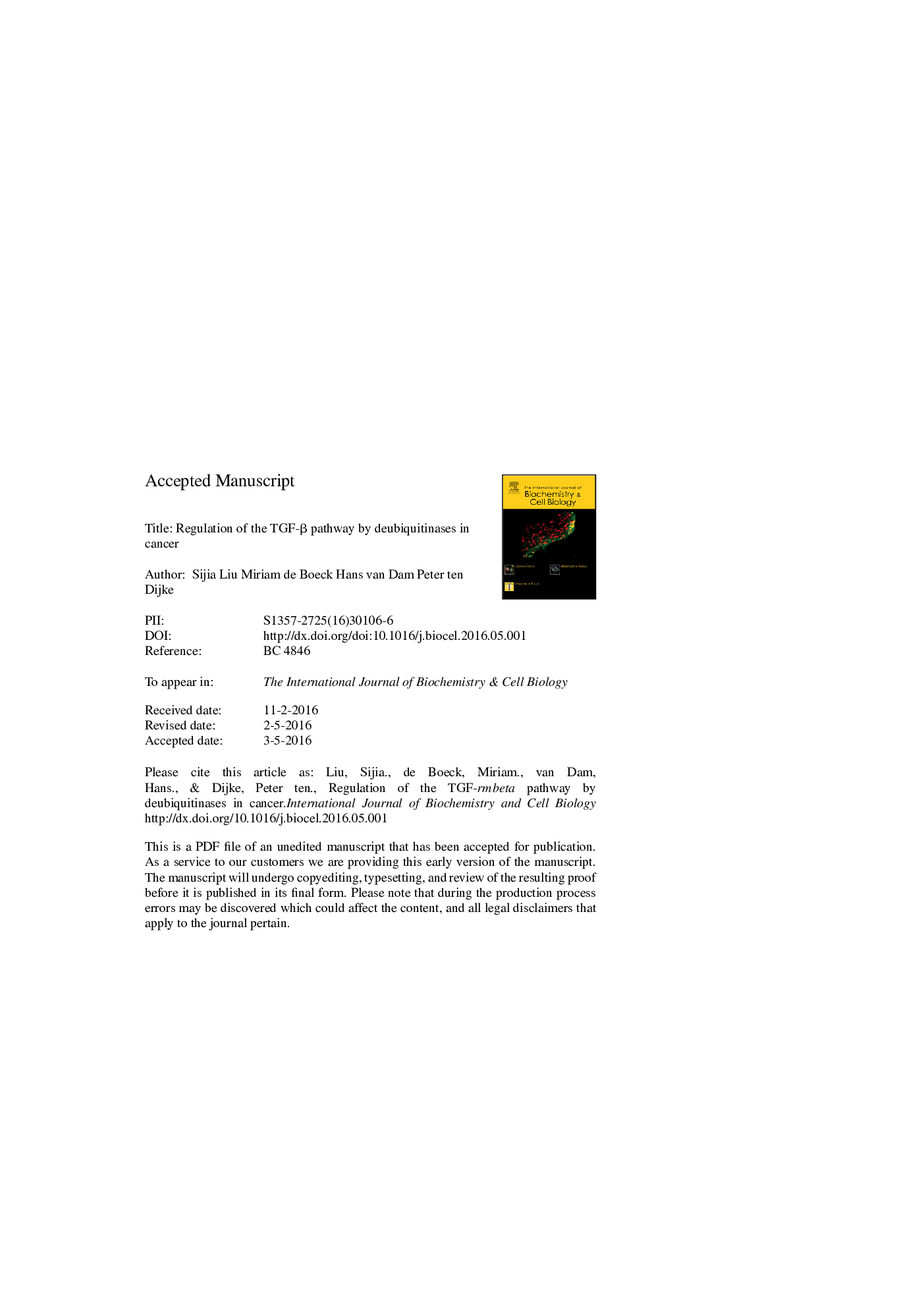| Article ID | Journal | Published Year | Pages | File Type |
|---|---|---|---|---|
| 8322311 | The International Journal of Biochemistry & Cell Biology | 2016 | 38 Pages |
Abstract
The transforming growth factor-β (TGF-β) pathway regulates diverse cellular processes. It signals via serine/threonine kinase receptors and intracellular Smad and non-Smad effector proteins. In cancer cells, aberrant TGF-β signalling can lead to loss of growth inhibition and an increase in invasion, epithelial-to-mesenchymal transition (EMT) and metastasis. Therapeutic targeting of the pro-oncogenic TGF-β responses is currently being explored as a potential therapy against certain invasive and metastatic cancer types. The ubiquitin post-translational regulation system is emerging as a key regulatory mechanism for the control of TGF-β pathway components. In this review, we focus on the role of deubiquitinases (DUBs), which counteract the activity of E3 ubiquitin ligases. We will discuss the mechanisms by which specific DUBs control Smad and non-Smad TGF-β signalling routes, and how perturbation of the expression and function of DUBs contributes to misregulation of TGF-β signalling in cancer.
Keywords
Tumour protein p53c-Jun NH2-terminal kinaseAtaxin-3TAK1DeubiquitinasesSMADHNSCCATXN3HECTDeubiquitinasePI3KUBAUIMubiquitin-interacting motifTRAFsCSN5/Jab1TGF-βubiquitin conjugating enzymesMYSM1LPSIKKJnkp53TNFαMPNIGF-IBMPsDUBsIκB kinaseMAPKsOTUsSmurfAMshtransforming growth factor-βtransforming growth factor-β-activated kinase 1tumour necrosis factor-αEMTRingUbiquitin-associated domainCancerInsulin like growth factor 1phosphoinositide 3 kinaselipopolysaccharideProteasome inhibitorbone morphogenetic proteinsCHiPreally interesting new geneHead and neck squamous cell carcinomamitogen-activated protein kinasesepithelial-to-mesenchymal transitionUbiquitin
Related Topics
Life Sciences
Biochemistry, Genetics and Molecular Biology
Biochemistry
Authors
Sijia Liu, Miriam de Boeck, Hans van Dam, Peter ten Dijke,
